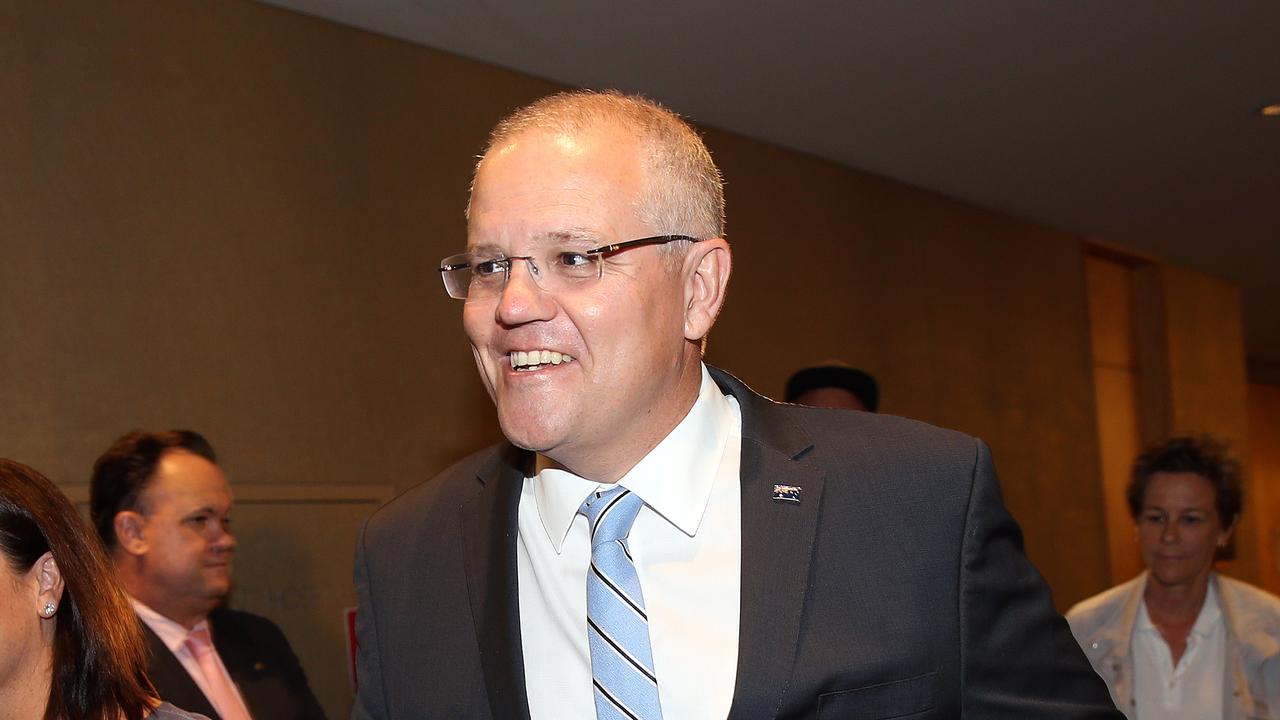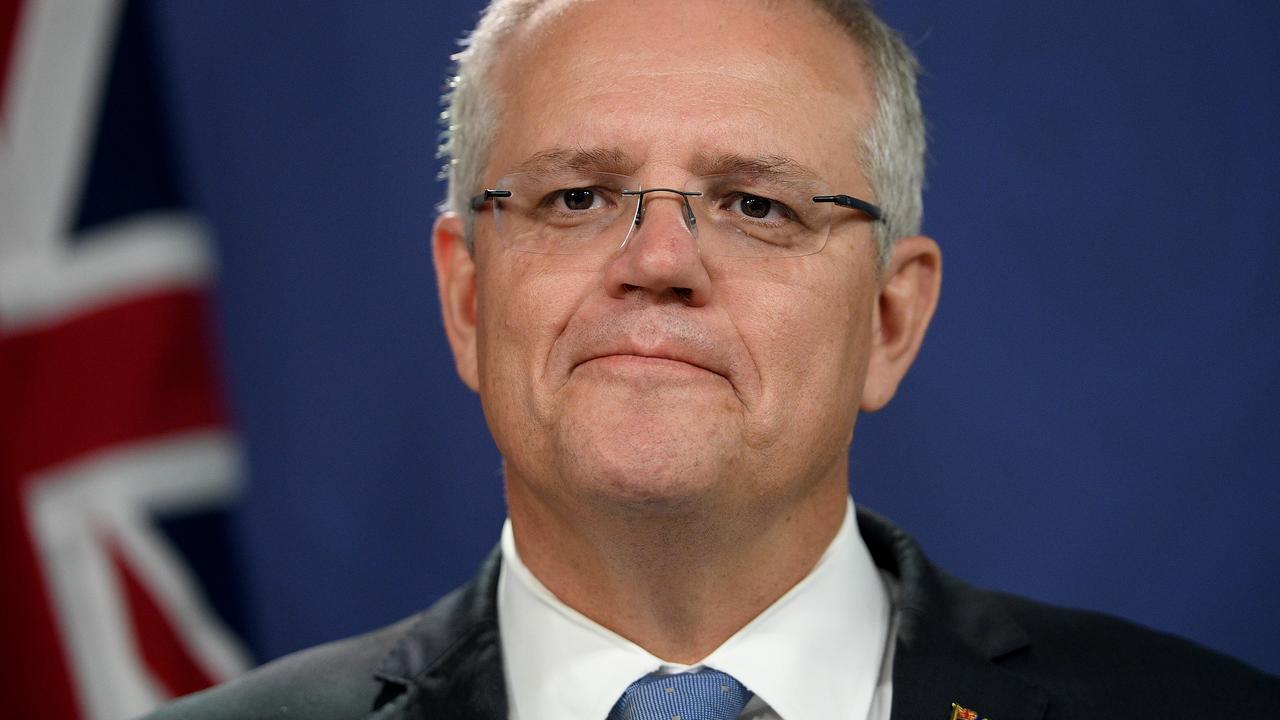Doggedness ditched as Tony Abbott takes a reality check
TONY Abbott is stubborn and fatalistic. As a result the Prime Minister has been slow to change, given only some ground when he should have given the lot and been reluctant to take advice or fight for his leadership.
But now signs of real change are building his confidence and lifting the spirits of his reluctant and rebellious colleagues.
Abbott’s political near-death experience when 39 of his colleagues voted to get rid of him last month has had a cathartic impact on his political outlook and style. He has realised that simply saying “I’ve done my best” isn’t an acceptable epitaph for him as Australia’s Prime Minister should he be dumped by his colleagues.
That Abbott and his office did not make a successful transition from opposition to government is now accepted political wisdom. But whether Abbott could change from his stubborn ways and decisively reject his pet enthusiasms for the good of the government and his own survival remained an unanswered question.
This week, above all others, Abbott has shown a willingness to rid himself of baggage and displayed flexibility in action that suggests he is capable of, and committed to, reviving his deeply damaged leadership.
Timeline: Prime Ministerial leadership ballots
The release this week of the Intergenerational Report on the demographic and economic outlook for Australia 40 years hence provides the ammunition for Joe Hockey and Abbott to put the argument for policy reform and savings measures in the 2015 budget to the public in advance. It’s the right thing to do but it is a year late.
The inability to use the 2014 National Commission of Audit to do the same thing ahead of last year’s budget was a fundamental failing in trying to persuade the public of the need for reform and opened the way for Labor’s successful “unfair budget” campaign.
Abbott and Hockey, stuck together in political life or death, are using the Intergenerational Report to apprise the public of the longer-term problems Australia faces before putting forward incremental and cautious solutions.
On Thursday Abbott told parliament: “This is a report that should provide the foundation for an intelligent and sensible national conversation on how we do the right thing by our country. That is what we need. We need an intelligent and sensible conversation about how we do the right thing by our country by tackling the real problems that we face.”
It took Abbott a full year to appreciate how the process of bringing people with the government had been bungled and to accept that failure meant necessary and justifiable reforms have had to be dropped.
On Tuesday Abbott confirmed that the proposed Medicare GP co-payment was “dead, buried and cremated” after months of using grudging half-measures to stubbornly keep the idea alive beyond political reason. It was right to seek a price signal for visits to the GP but political ineptitude has put it off the table for a good long time.
As with his signature paid parental leave policy, now abandoned, Abbott tried to hold fast to an idea that was thoroughly unpopular with his colleagues and political poison by offering small sacrifices that never went far enough.
In the end what should have been a dramatic and saving gesture in dumping the policy was swamped by the culmination of backbench angst over so many other issues.
In the same vein, Wednesday’s backdown on defence force pay, lifting the pay rise from 1.5 per cent to 2 per cent and above the inflation rate, was another move to defuse discontent. It was simply untenable to be taking advantage of the national security implications of announcing 300 troops would go to Baghdad to train Iraqi troops and not recognise the depth of feeling about the defence pay rise on offer.
As Abbott said: “We have deployed additional numbers of our defence forces into what is a difficult and dangerous mission, training mission, not a combat mission, but nevertheless difficult and dangerous. It does reinforce just how much we ask of our defence forces.
“It does reinforce the special status that our defence forces have. It does highlight the special compact that the minister has referenced between the Australian people and those who wear our uniform.”
Of course, that compact hadn’t changed since the first 170 troops were sent to Iraq to “advise and assist” or since our pilots started flying combat missions, but it was a major dose of reality for Abbott.
The commitment of troops to Iraq and popular support for Abbott and the Coalition on the issue of national security is one of the Prime Minister’s outstanding political achievements because he has melded the fight against Islamic State in Iraq with the threat the “death cult” projects into Australia.
Abbott was keen to act in this area well before last month’s leadership spill, in December removing David Johnston as defence minister and placing the portfolio into the “steady hands” of Kevin Andrews, who has been able to put proposals to his leader and have them accepted.
The handling of the $20 billion submarine project was messy and highly politicised as Abbott faced a partyroom showdown where he could have been dumped. The submarine purchase, a huge financial outlay and strategically vital, was skewed into a domestic argument about local jobs for Adelaide.
After a messy beginning there is now a political settlement that allows the submarine project to be considered properly and for local MPs to deliver a clear line on maintenance jobs for South Australia.
Again, this should have been sorted last year and would have spared Abbott much political grief and internal antagonism.
Abbott also has recognised that the Coalition has to “stop talking about ourselves”, as he told his cabinet colleagues this week, and fill the public discourse with actions the government is taking.
There had to be more than backflips and Abbott has demonstrated — with the fillip of a two good polls in two weeks — he can act confidently and flexibly with appropriate panache and necessary aggression.
Abbott’s gracious and heartfelt appeal for the Bali Nine prisoners facing execution, including a wholly bipartisan approach with Bill Shorten, demonstrated a sure-footed confidence that was neither insulting to Indonesia nor compliant.
The Treasurer’s dramatic announcement of the forced divestment of a $39 million house in Sydney’s upmarket Point Piper because a Chinese businessman had breached the foreign investment rules was another decision that will resonate.
Some of these decisions — the framing of the Intergenerational Report, the commitment of more troops to Iraq, the dumping of the Medicare co-payment — have been under consideration for some time.
Others, such as bumping up defence pay and the submarine clarification, have been considered only since the leadership spill.
Either way, a more confident Abbott has demonstrated that he can be flexible. Whether it lasts or works for him will be a matter for his colleagues — but for the moment he has more time to demonstrate he’s less dogged than he was.



To join the conversation, please log in. Don't have an account? Register
Join the conversation, you are commenting as Logout